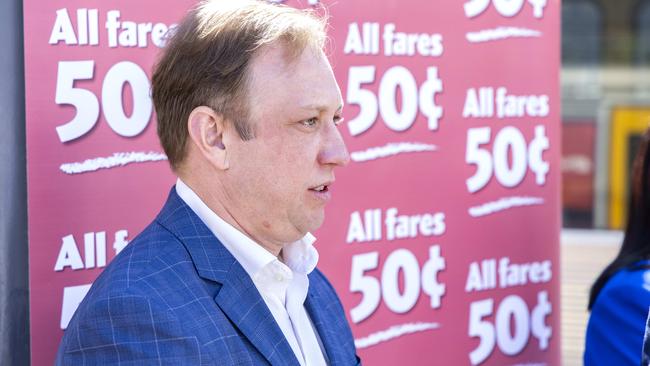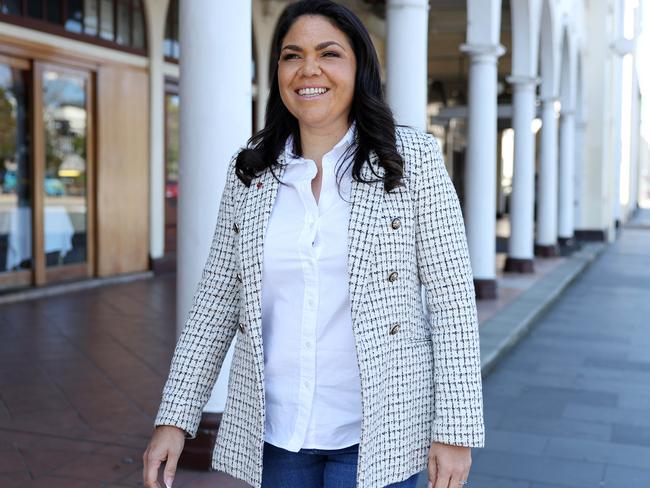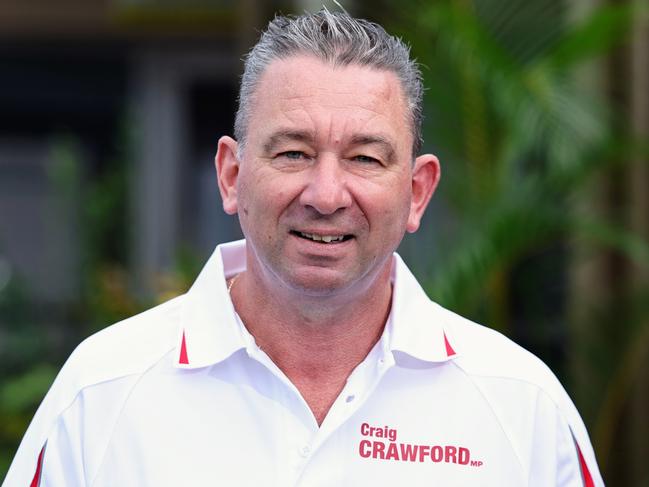Opinion: Time for truth-telling about the multimillions treaties will cost us
We hear a lot about being able to catch the bus for 50c, but radio silence on the treaty that will prove costly, writes Mike O’Connor.

Mike O'Connor
Don't miss out on the headlines from Mike O'Connor. Followed categories will be added to My News.
Let’s talk about the truth, and with a state election looming, who wouldn’t want to have a chat about the truth, the whole truth and nothing but the truth?
The Queensland Labor government is all about truth telling of the Indigenous kind, pushing through legislation some 18 months ago to establish a truth telling inquiry and a body that would lead to the establishment of a treaty.
It July it finally set up the truth-telling and healing inquiry and First Nations Treaty Institute under the chairmanship of Joshua Creamer, a barrister and Indigenous man who specialises in human rights, class actions and native title.
The inquiry will have the far-reaching powers of a royal commission and hold public hearings across the state to investigate the historical and ongoing impact of colonisation.
The inquiry’s findings, whatever they may be, will almost certainly be used by the state’s 150 Indigenous groups in treaty negotiations with the state government.
These are likely to include demands for financial payments in the form of reparations, changes to school curriculums and the way history is taught, special Indigenous treatment relating to health, criminal justice and child protection, the management of national parks and changing place names.
State Labor MP Craig Crawford has said that the area of land taken by British settlers could be used to calculate how much would be paid to local Aboriginal groups.
He said treaties finalised in New Zealand cost tens or hundreds of millions of dollars.
“I think that will give us a bit of a guide to get an idea as to what that looks like in a Queensland context,” he said.
How strange it is, then, that given the potential of any treaty to have a significant impact on the lives of all Queenslanders and on the finances of the state, Premier Steven Miles is not indulging in some truth telling and telling voters what his government expects the impact of the inquiry and subsequent treaty to be.
We hear a lot about being able to catch the bus for 50c, but radio silence on the treaty.

Opposition Leader David Crisafulli might be adapting a small-target strategy on some issues, but has given voters an assurance that the axing of the treaty institute and truth-telling inquiry will be a priority if his party wins government.
“That process will end,” he said.
“Our counterpoint to that will be on accountability when it comes to housing, education, law and order, and lifting those communities up and giving them hope.”
He may well have been guided in this by the fact that 68.9 per cent of eligible Queenslanders voted no in the Voice to Parliament referendum, with only three federal electorates out of 30 in the state voting yes.
Federal Opposition Indigenous Australians spokeswoman Jacinta Price said Australians should be very concerned about state treaties, warning that they could be used by the federal government to ram it on through at a federal level.
Her warning followed a publicly funded treaty discussion group in Victoria banning the media from reporting on its deliberations with Senator Price saying the secrecy and lack of transparency was the first red flag about how the treaty process was being undertaken nationwide.
On the subject of truth, Rule of Law Institute of Australia vice-president Chris Merritt referenced some truths recently.
Writing in The Australian, he said that it was misleading and divisive to talk of First Nations or to assert that some Indigenous communities had not ceded their sovereignty because they had none to cede.
He quoted the judgment of High Court justice Anthony Mason when faced with the argument of Aboriginal sovereignty in the Mabo (2) case, who ruled that Mabo (2) was “entirely at odds with the notion that sovereignty adverse to the Crown resides in the Aboriginal people of Australia”.
“The decision is equally at odds with the notion that there resides in the Aboriginal people a limited kind of sovereignty embraced in the notion that they are ‘a domestic dependent nation’ entitled to self-government and full rights (save the right of alienation), or that as a free and independent people they are entitled to any rights and interests other than those created or recognised by the laws of the Commonwealth, the State of NSW and the common law,” Mason wrote.
It is a judgment worth bearing in mind the next time you are forced to sit through a welcome to country ceremony.




